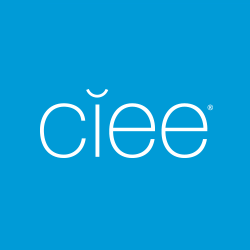4 Simple Tips for Getting a Great Teacher Recommendation
Many study abroad programs require a recommendation from a teacher as a part of the application process. Depending on the program, this can sometimes mean having a teacher just answer a few short questions about you or it may require a teacher recommendation letter.
This is in place to verify that you are a good candidate for the program based on the word of someone who knows you well—your personality, maturity, work ethic, and academic skills.
Teacher recommendations are hugely important as they make the static facts in your resume and academic transcript come alive with stories of who you are in real life. An excellent teacher recommendation may also help you get a study abroad scholarship.
Here are four tips on how to get a great letter of recommendation to help you get accepted into the study abroad program of your dreams!
1. Select a Few Possible People
First, find out what the application requires, including how many recommendations you need and who they should be from. For example, CIEE suggests that your teacher recommendation comes from one of your current teachers. You can’t use a family member or friend outside of an academic context.
Once you have determined who would be suitable to write you a reference based on the application requirements, think about who would best write an authentic, positive, and relevant recommendation. The person you select should be able to provide specific examples of how you were successful in their class or how you contributed. They should also be able to speak about you as a person, not just a student!
When you are choosing whom to reach out to, consider the following:
- Does this person know you well? Have you built a strong relationship with them?
- Are there any important or relevant projects, successes, or academic accomplishments you have completed with this person as your teacher?
- Can this person attest to your maturity and independence that makes you a perfect fit for study abroad?
- Can they attest to your academic readiness? For example, are they your language teacher?
- Have you had any experiences with this person that show you are socially and emotionally adaptable?
While you may have favorite teachers, coaches, or club heads, it is important to choose someone who acts like a cheerleader in your life, rooting you on and pushing you to be successful. You don't want a lukewarm recommendation, and you don't just want a "good" recommendation—you want it to be glowing.
2. Ask Them Ahead of Time and Provide All the Information They Will Need
Once you have decided who you’ll ask, informally contact them to see if they are up for it. Don't worry—they usually are!
Next, make sure you give them plenty of time. Teachers typically have very busy schedules, so it's best practice to give them at least 3-4 weeks' advance notice.
Once you've received the go-ahead, provide your reference with the following information:
- The details of where to send the recommendation and when it is due,
- A description of the study abroad program, and
- A copy of your transcript and a list of any relevant extracurricular activities.
| Good to let your teacher know: CIEE’s teacher’s recommendation for high school summer programs can be completed online and will take your teacher 10-15 minutes to complete! |
3. Tell Them Why You Are Applying and Why You're a Good Fit
Along with all the practical details to send your reference, send them a summary of:
- Why you want to go on this program,
- Why you believe you are qualified, and
- How your experience with the recommender highlights your qualifications.
Unless you have already talked to your reference about the study abroad program, they may not know why you want to do it! Providing them with this information will help them understand why you are pursuing this opportunity and write a more accurate recommendation.
Having trouble connecting the dots? Here are some questions based on qualities the admissions team will look for. Ask yourself these questions and start brainstorming.
Leadership
- Did you ever lead a project in their class?
- Did you ever formally or informally help out another student with a project?
- Were you successful as a member of a team?
Independence

- Have you shown yourself to be capable of independent study?
- Do you push yourself to succeed?
- Do you take initiative?
Social-Emotional Skills & Adaptability
- Have you persevered through a challenge?
- How have you dealt with a bad grade or a disappointment of another kind?
- Do you have good relationships with other students, even ones you might not be friends with outside of class?
- Do you generally have a positive, can-do attitude?
- Are you flexible when it comes to changes in curriculum, schedule, or expectations?
Remember—talking about challenges you've encountered can be more powerful than talking about your easy-to-achieve successes. How we overcome challenges shows resilience and strength.
4. Follow Up and Thank Your Teacher!
Follow up with your teacher at least one week before the study abroad recommendation letter is due and make sure they have everything they need from you. Finally, don't forget to send them a thank you note to tell them how much you’ve appreciated their help!
Applying to a High School Summer Study Abroad with CIEE

If you’re still looking for the right fit for your high school summer program, CIEE has program options in 35+ amazing destinations that are focused on a variety of high school subjects.

